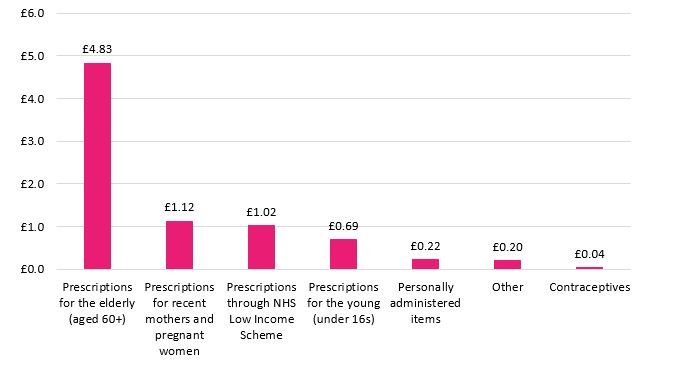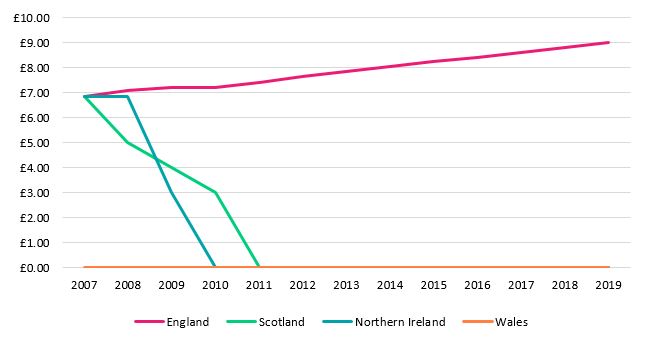The recent House of Lords report on intergenerational fairness has proposed a range of policies aimed at providing fairer taxation and distribution of benefits across age groups in the UK.
This includes abolishing the State Pension “triple lock” and ending universal pensioner perks such as free television licences for all over the age of 75.
The proposed reforms have come in response to concerns that younger age groups have borne the brunt of fiscal austerity in recent years – for example, with working age benefits frozen while the State Pension has increased more rapidly than employee earnings.
While the SMF broadly agrees with the measures proposed in the House of Lords report, we have noted a curious absence in the list of reforms: NHS prescription charges in England.
The current system of healthcare charges is a dog’s dinner. While many healthcare services are free at the point of use, others involve charges for at least some members of the population. This includes eye tests, dental care and prescriptions.
Critically, rather than being based on ability to pay alone, free access to services is available to swathes of the affluent population that could easily afford modest charges. Most notably, anyone aged 60 or over – rich as well as poor – is entitled to free prescription charges and sight tests in England.
Few would dispute that those on low incomes should be entitled to free health services, but the extension of free prescriptions and eye tests to those that could easily pay themselves is much more difficult to justify – at least without going the whole hog and making all elements of healthcare free for everyone. Giving free prescriptions and eye tests to affluent pensioners, at a time when there are great concerns about intergenerational inequality, makes little sense.
Some 1.1 billion prescriptions are dispensed annually in England, according to the NHS, with the cost of these prescriptions standing at £9.2 billion in 2017. Staggeringly, the NHS only recovered £1.0 billion of these costs through prescriptions charges, with over £8 billion worth of prescriptions given out free of charge. Those aged 60 and over accounted for 59% of these free prescriptions – costing the NHS close to £5bn. About one in every 20 pounds spent by the NHS in England is on free prescriptions for the elderly.[i]
Cost of free prescriptions to the NHS in England, £bns, 2017

Some have argued for a supplement to employee National Insurance Contributions to raise additional funding for the NHS. According to the “ready reckoner” published by the Treasury, a 1 percentage point increase in the employee main rate of NICS would raise just over £4 billion per annum. Yet this would make the tax system in the UK even more intergenerationally unfair, given that those above the State Pension Age do not pay employee NICS at present.
A more intergenerationally fair way of raising money for the health service would be to make middle-to-high income pensioners pay for prescriptions – in an effort to recoup some of the £5bn currently spent on free medicine for the elderly in England. The presence of prepayment certificates, which cap prescription costs, mean no one would be left seriously out of pocket from the move.
If we are to have prescription charges in England, eligibility for free prescriptions should be based on ability to pay, not someone’s age. Alternatively, let’s make prescriptions free for everyone in England, with the cost of this funded through general taxation. This would bring England into line with other parts of the UK; Wales, Northern Ireland and Scotland already offer free prescriptions to all residents.
Going it alone. England is now the only part of the UK with prescription charges.
Prescription charges across the UK, £

Either approach – broader prescription charges or free prescriptions for all – would be fairer and more justifiable than our current system of charges, though the latter might be a more politically acceptable option given the risk of alienating older voters with new prescription charges. That would be a bitter pill for government to swallow…
[i] Given total health spending in England of £125bn in 2017/18
